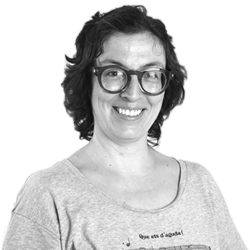The Balearic institutions are once again focusing on tourism promotion at the World Travel Market in London
Prohens highlights the growth in tourists during the off-season, and the Consell de Mallorca assures that the island will reinvent itself thanks to artificial intelligence.


PalmAs the Government's Pact for Sustainability enters its second phase, focused on proposals for tourism containment, the Balearic Islands' institutions are once again concentrating their efforts on promoting the islands at one of the sector's most important trade fairs, the World Travel Market (WTM) in London. As every year, the regional government, councils, and municipalities have attended the event in the British capital to highlight the advantages of the Balearic Islands and present them as a cultural destination, a key message of the People's Party since it came to power in 2023.
the Government's new strategy"The triad of tourism, culture, and sports as the cornerstone of promoting tourism internationally," the government explained in a statement. The statement, published Tuesday, indicates that President Prohens has championed this year "the tourism transformation strategy focused on presenting the Balearic Islands as a cultural destination." Although the islands will once again break a new record for tourist arrivals, the president emphasized that the bulk of the growth has occurred during the low season, precisely thanks to the strategy that combines "tourism, culture, and sports." However, the number of visitors has continued to grow during the high season: 0.8% in July and 1.8% in August. Tourism Minister Jaume Bauzà spoke of a "historic change of course, based on sustainability, quality, and coexistence," and underlined that the tourist season now lasts nine months in the islands. Bauzá also indicated that the Government's aim is to make the Islands "the first fully circular destination in the Mediterranean," although he did not specify what measures will be implemented to achieve this goal.
The "reinvention" promoted by the Consell de Mallorca
For their part, representatives of the Consell de Mallorca (Island Council of Mallorca) have presented what they consider "an ambitious project" to allow tourists to design their trips using artificial intelligence tools. According to the island institution's statement, this initiative "links past, present, and future." With AI tools, tourists will be able to "generate personalized routes," with activities such as hiking and learning about local crafts, like glassblowing. They will also be able to "design complete itineraries for their stay," which, the Consell emphasizes, "can be downloaded or sent by email." Furthermore, they will receive recommendations tailored to their preferences, a measure that the island institution believes "helps promote responsible tourism and alleviate overcrowding in the most crowded areas." The Palma City Council has emphasized "the transformation of the tourism model through culture," and Mayor Jaime Martínez explained "the key elements of Palma's bid to become the European Capital of Culture in 2031." According to Martínez, culture "can transform tourism, regenerate the territory, and redefine the future of the Mediterranean."
A delegation from the Calvià Town Hall also traveled to London "with the intention of reaffirming its appeal in the British market," according to a statement from the council, which highlighted "a solid growth trend" and the extension of the season. Regarding the presentation by the Menorca Island Council, the island institution presented the island "as a cultural cluster of the Mediterranean." The Menorcan president, Adolfo Vilafranca, announced the Opening Cultural-Island of Art, an artistic event that will mark the start of the season after Easter. "More and more travelers are visiting us, attracted by our cultural offerings and our creative lifestyle," said Vilafranca, who wants to consolidate Menorca "as a leading destination for those seeking inspiration, authenticity, and shared beauty."
